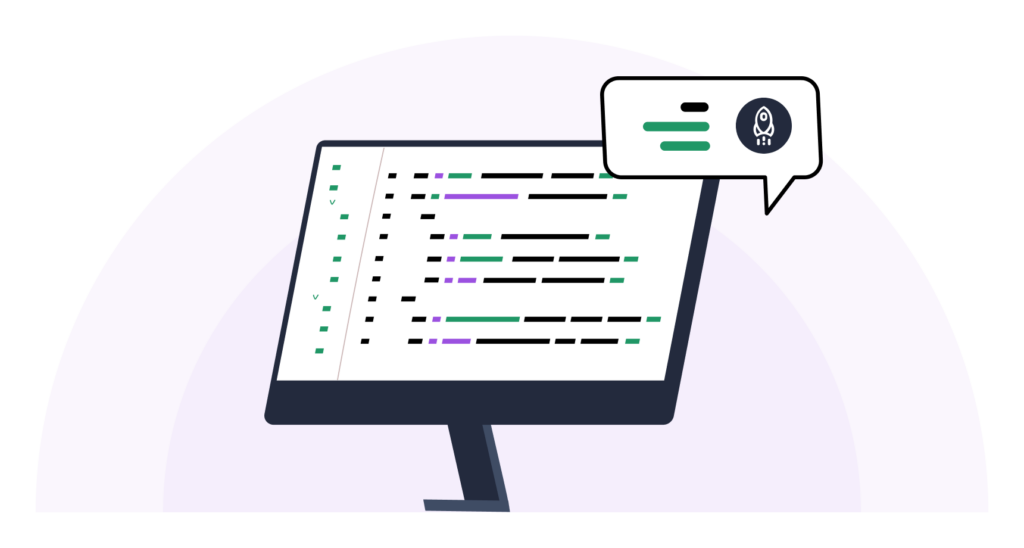What Is an API and How Is It Used When Working with AI?

Have you ever wondered how financial institutions detect fraud in real time, city officials monitor and manage congestion, or medical data is analyzed instantly? It's all made possible through AI APIs, connecting technologies behind the scenes.
In this post, we're simplifying AI APIs: what they are, how they work, and why they matter for data privacy and security. We'll show how applications connect to AI services via APIs, and how Dataquest equips you with the skills for this evolving field. With most cloud-native applications expected to use these for machine learning by 2024, according to Gartner¹, it's crucial to get up to speed on APIs in AI.
Understanding the Application Programming Interface(APIs) in AI Projects
What is an API
An API, or Application Programming Interface, is a set of rules and tools that facilitates communication between software applications, acting as a bridge for efficient data flow across different systems. It has evolved into an advanced web service crucial for technological progress and integration across platforms.
In industries such as finance, healthcare, and e-commerce, APIs play a crucial role by streamlining operations and enhancing user experiences through real-time financial transactions, secure sharing of patient data, and personalized online shopping. According to a Statista report, ², statistics predict substantial growth in the global API market, highlighting the essential role APIs play in contemporary software development.
APIs are also key in AI development. They give developers access to ready-made AI models and services which boosts efficiency and drives innovation by simplifying the integration of AI features.
The future looks even brighter for APIs. According to Gartner,³, we can expect a substantial increase in machine learning applications powered by APIs by 2024, confirming their indispensable role in advancing technology.
How APIs Work: The Basic

AI APIs are the intermediaries that let different software applications talk to each other, much like a waiter takes your order to the kitchen and brings back your meal. They're crucial for integrating sophisticated functionalities into software applications securely and efficiently.
Let us say you are using a music streaming service to find your favorite playlist. The app sends a request to the service's API, which then fetches and returns your playlist. Or imagine updating your shipping address on an online store; this change is sent through an AI API to update the store's records.
The Anatomy of an API Transaction
An API transaction includes:
- Request: The application's call for a specific operation.
- Response: What the server sends back after processing the request.
- Endpoints: Where requests are sent and responses come from within the API.
- Methods: Actions available through the API, such as GET (retrieve data), POST (send new data), PUT (update existing data), and DELETE (remove data).
Secure Communication via APIs
AI APIs ensure secure exchanges by requiring authentication, which confirms request legitimacy, and authorization, which grants access to certain functions or data. Cequence AI recommends security measures like secure tokens and encryption to prevent unauthorized access.
APIs: Connecting with AI Services
APIs also make it easier for apps to use advanced AI services—for example, translating text or recognizing faces. An app can call on an AI service's API for these tasks without needing in-depth knowledge of AI algorithms.
AI Analytica⁴ highlights how AI APIs provide access to pre-trained machine learning models for tasks like image analysis or sentiment detection in texts, streamlining development processes.
Scalability Through APIs in AI Projects
AI APIs offer scalability in AI development by allowing easy connections with more robust cloud-based resources or switching between service providers as needed. As VentureBeat⁵ points out, this flexibility enables quick adaptation and deployment in software projects, making AI APIs indispensable tools for businesses aiming for agility in their AI endeavors.
In essence, AI APIs are vital connectors that enable not just simple tasks like retrieving playlists but also incorporating cutting-edge AI into various systems-playing a central role in modern software development strategies aimed at innovation and rapid growth.
API Use Cases

AI APIs are pivotal for integrating data and AI models across various sectors, from healthcare to finance, paving the way for advanced analytics and AI-enhanced decision-making.
Healthcare: APIs at the Heart of Patient Care
AI APIs in healthcare⁶ enable real-time medical data analysis, significantly enhancing diagnostics and patient care. By linking disparate healthcare applications and devices, AI APIs streamline workflows and are key in creating personalized treatment plans. For example, they can connect wearable device data to health records for continuous monitoring and customized health strategies.
E-Commerce: Crafting Personalized Shopping with APIs
In e-commerce⁷, AI APIs analyze customer behavior to deliver tailored shopping experiences. They help businesses craft individualized recommendations and marketing strategies. Additionally, AI APIs synchronize sales data with inventory levels, optimizing supply chain management.
Smart Cities: APIs Driving Urban Efficiency
Smart city projects⁸ harness AI APIs to integrate IoT devices for improved urban services like traffic control and energy distribution. These connections allow city officials to monitor infrastructure effectively and address issues such as congestion proactively. Through sensor data integration, APIs foster intelligent systems that elevate urban living while promoting sustainability.
Financial Services: Real-Time Security with API Integration
Financial institutions⁹ rely on AI APIs for immediate fraud detection by analyzing transactions in real time. This swift analysis pinpoints irregularities that could indicate fraud, enabling prompt protective measures. Moreover, AI APIs provide quick access to market data for risk assessment models, supporting informed decision-making.
Challenges and Considerations

When integrating APIs with AI systems, we must navigate several challenges and considerations to ensure safe, reliable, and ethical technology use.
Tackling Security Vulnerabilities
Security is a top priority with AI APIs. Risks such as data breaches and unauthorized access can have devastating effects. Cequence AI underscores the necessity of strict security protocols, including secure tokens and encryption. Regular security audits are also crucial to safeguard against cyber threats.
Upholding Data Privacy and Compliance
Adhering to privacy laws like GDPR and HIPAA is non-negotiable in API usage within AI projects. It's imperative that all sensitive data be encrypted both in transit and at rest, protecting personal information in compliance with legal standards.
Simplifying Complex Integrations
Legacy systems present a significant hurdle in AI API integration due to their often outdated infrastructure. This complexity can delay the rollout of AI features, so it's vital for organizations to evaluate their systems' compatibility with AI APIs early on.
Ensuring Reliable Performance
Reliability is key when external AI APIs drive AI functionalities. As AI Analytica¹⁰ highlights, downtime or delays from these services can impact user experience negatively. Companies must consider their API providers' stability as part of their risk management planning.
Navigating Ethical Implications
The use of AI APIs in AI raises important ethical questions around surveillance and bias. Developers need to embed transparency into their models and weigh the societal impacts of their technologies, advocating for responsible standards in tech deployment.
Assessing Employment Impacts
API-driven AI advancements are a double-edged sword for employment; they create new tech jobs but may displace others through automation. Policymakers must balance these effects to ensure job opportunities evolve alongside technological progress.
Future Outlook: AI Capabilities and APIs
The Rise of Advanced AI through APIs
We're on the cusp of a significant leap in AI capabilities, thanks to AI APIs. Expect to see breakthroughs in natural language processing, machine learning models, and predictive analytics. These technologies will form the backbone of increasingly sophisticated AI services accessible via APIs.
Generative AI
Generative AI is revolutionizing how businesses innovate and streamline operations. The IBM Research Blog showcases its power to automate complex tasks like chip design and generate synthetic datasets for machine learning training-fueling efficiency and novel solutions.
Preparing for the API Evolution
To stay ahead in this changing landscape, consider these steps:
- Stay Informed: Keep up with API trends to understand their potential for integrating complex AI.
- Forge Partnerships: Work with API providers and AI vendors to access cutting-edge capabilities.
- Remain Agile: Update your systems and processes to embrace new AI technologies through APIs.
Integrating AI Seamlessly Across Industries
APIs are key to deploying AI in fields such as healthcare, where they can quickly integrate diagnostic tools, and finance, where they enable real-time fraud detection. This seamless data sharing and model deployment are essential for efficient operations across sectors.
Democratizing Access to Advanced Technology
AI APIs are leveling the playing field by making advanced technology accessible to more developers. The IBM Research Blog illustrates how their accessibility is revolutionizing tech by enabling developers without specialized knowledge to deploy advanced AI tools IBM¹¹
Insights from Gartner
Gartner Insights project that by 2024 most cloud-native applications will turn to AI APIs for AI functionalities Gartner¹². This prediction highlights the necessity of adopting API strategies now to remain competitive in a future dominated by AI technologies.
Kickstart Your Journey with APIs

First Steps in API Mastery
If you're eager to tap into the potential of AI APIs for AI applications, Dataquest's APIs for AI course is your structured starting point. It's designed for those ready to learn how to make HTTP requests, filter data, and handle API rate limits using Python.
Prerequisites You'll Need
Before you begin, it's essential to have a handle on Python basics and some experience with data handling in Python. These skills are foundational to your success in the course and can be developed through Dataquest's Python Basic and Data Handling Experience courses.
Why Dataquest Stands Out
The APIs for AI course stands out because it emphasizes practical skills over theory. This means you'll be able to apply what you learn directly to real-world situations, bridging the gap between learning and doing. Dataquest also has a stable learning platform with an internal API server that overcomes external server limitations.
A Clear Path Forward
The course is carefully structured to walk you through key aspects of API interactions:
- HTTP Requests: Learn how to send and receive data.
- Data Filtering: Gain skills in sifting through data to find what matters.
- API Authentications and Rate Limits: Understand how to access and manage your API usage effectively.
Aligning Learning with Industry Needs
Our goal is straightforward: equip you with the proficiency needed to extract and process web data using Python in just a few months. The hands-on exercises are designed around actual scenarios you'll encounter in the tech industry, making your learning experience as relevant as possible.
Building on Strong Foundations
Starting with a solid foundation in Python and data handling sets the stage for tackling more complex topics like APIs. Dataquest’s courses lay this groundwork, ensuring that when you move on to advanced subjects like APIs, you're not just theoretically prepared but also practically capable of overcoming real challenges involving web data extraction and API integration.
By choosing Dataquest's API fo AI course, you set yourself up for success in mastering the complexities of APIs-a vital skill set in today's AI-powered digital world.